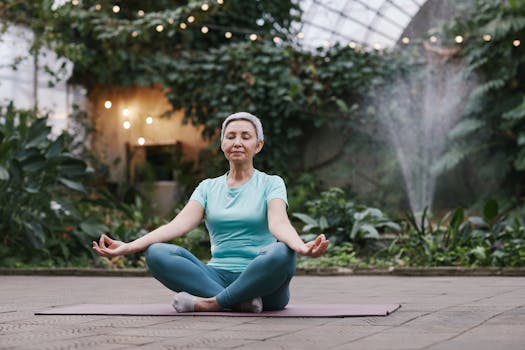Takeaways
- Regular physical activity promotes better mental health.
- Exercise can reduce symptoms of anxiety and depression.
- Physical activity enhances mood and boosts self-esteem.
- Staying active can lead to better sleep and reduced stress levels.
The Connection Between Physical Activity and Mental Health
Hey there! If you’ve ever felt a bit down or stressed, you might have heard someone say, “Just go for a run!” or “Why not hit the gym?” It might sound cliché, but there’s a good reason behind this advice. Regular physical activity is not just about bulking up or fitting into your favorite jeans; it’s a powerful tool for boosting mental health!
Let me share a little bit about my journey. There was a time when I felt overwhelmed with work, personal issues, and everything in between. I decided to start jogging in the mornings, and honestly, it was life-changing. Not only did I start feeling more energetic, but my mood improved drastically. Suddenly, I was more focused, less anxious, and genuinely happier. So, let’s dive into the amazing mental health benefits of getting off the couch and moving!
Why Exercise Matters for Your Mind
First things first, let’s talk about how exercise affects our brain. When you engage in physical activity, your body releases endorphins, those feel-good hormones that make you feel like a million bucks. It’s not just a one-time thing; consistent exercise can lead to long-term changes in the brain, enhancing your mood over time.
Moreover, physical activity can help combat feelings of anxiety and depression. Research shows that even moderate exercise can significantly reduce these symptoms. I remember one particularly stressful week when just a short walk in the park helped clear my mind and lift my spirits. It’s like a reset button for your brain!
Another fantastic benefit? Improved self-esteem! Regularly hitting the gym or participating in a fun activity like dance or yoga can make you feel accomplished. When you set goals and achieve them—be it running a mile or mastering a new yoga pose—you build confidence and a sense of worth that spills over into other areas of your life.
Physical Activity and Stress Reduction
Now, let’s chat about stress. Life can be hectic, and sometimes it feels like the walls are closing in. Physical activity is a great way to manage that stress. When you exercise, your body goes through a stress response, but afterward, it’s like your body has done a mini detox. You feel calmer, more relaxed, and ready to tackle whatever life throws at you.
I often find that after a workout, I’m much better at dealing with issues that seemed insurmountable before. Whether it’s a difficult conversation at work or family drama, a good sweat session helps me approach these situations with a clearer, more composed mind.
Plus, let’s not forget about sleep! Regular exercise can help you fall asleep faster and deepen your sleep. I’ve noticed that on days I work out, I sleep like a baby. And better sleep equals better mood and mental clarity. It’s a beautiful cycle!
Simple Ways to Get Started
If you’re new to physical activity or haven’t exercised in a while, don’t worry! You don’t need to jump into an intense workout regimen to reap the mental health benefits. Start small. Maybe try a brisk walk around your neighborhood or a short yoga session at home. The key is to find something you enjoy, so it doesn’t feel like a chore.
Also, consider joining a class or a group. There’s something about being around others that can motivate you to keep going. Plus, you might make some new friends along the way! Remember, it’s not about how much you do; it’s about being consistent and enjoying the process.
FAQs
1. How much exercise do I need for mental health benefits?

2. Can I still benefit from exercise if I don’t enjoy traditional workouts?
Absolutely! Activities like dancing, gardening, or playing with your kids count as exercise and can provide mental health benefits.
3. How long does it take to see improvements in mental health from exercise?
Many people notice mood improvements after just one workout, but long-term benefits come from consistent activity over weeks and months.
4. Is exercise a replacement for therapy or medication?
While exercise can be a powerful tool for mental health, it should complement, not replace, professional help when needed.
5. What types of exercise are best for mental health?
Anything that gets your heart rate up! This includes running, swimming, cycling, or even yoga. Find what you love!






